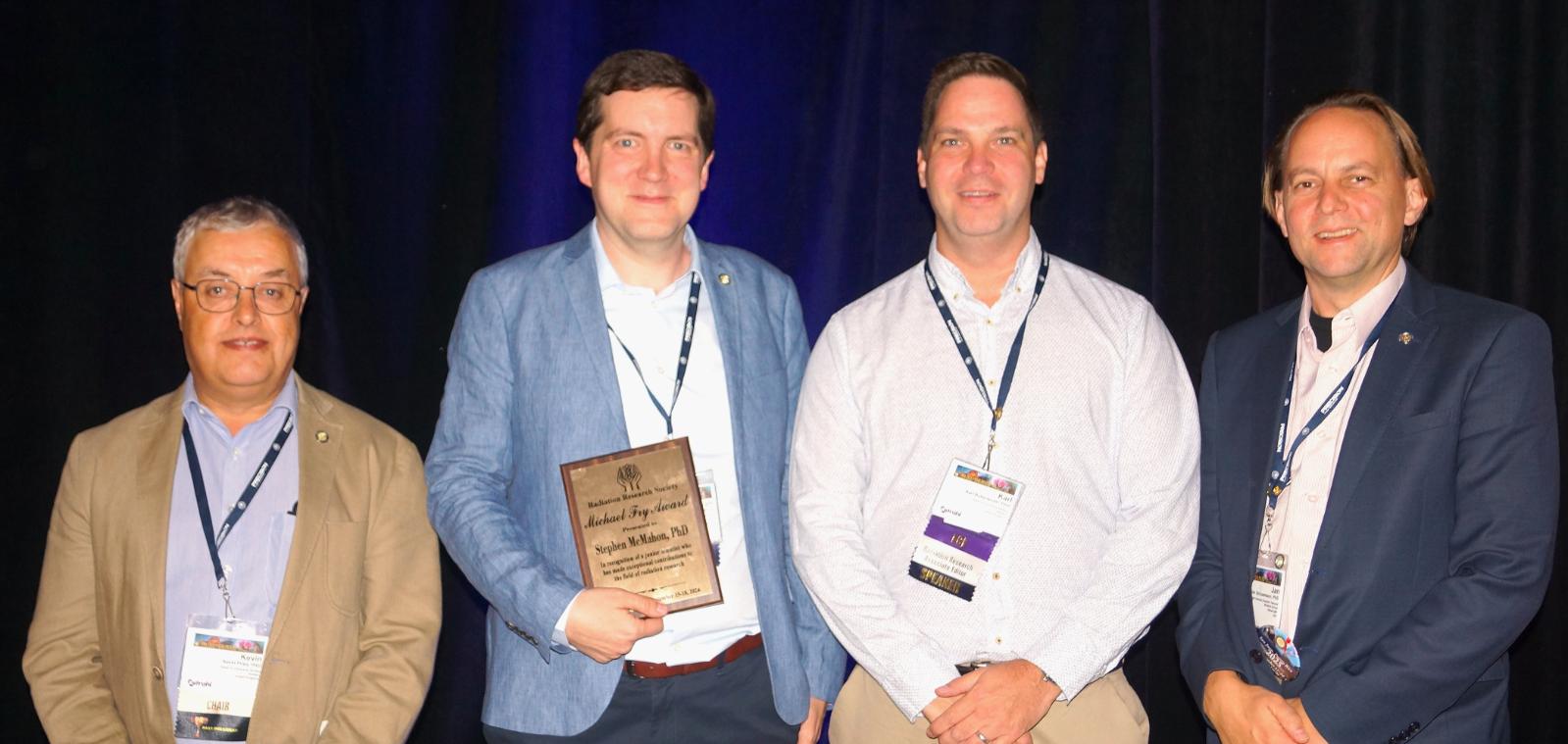Dr Stephen McMahon awarded prestigious Michael Fry Award
The international prize given by the Radiation Research Society (USA) recognises exceptional accomplishments in radiation research.

Dr McMahon is a reader in the Patrick G Johnston Centre for Cancer Research (PGJCCR) whose background in physics steered him towards radiotherapy where he began to focus on enhancing the precision of radiation delivery. As his career progressed he shifted towards modelling the biology of cancer’s radiation responses.
“My work has spanned a wide range of interests,” Dr McMahon explained, “such as why different individuals’ cancers respond differently to radiation, and why different types of radiation have different biological effects.”
Attempting to answer these questions, Dr McMahon applied techniques more commonly used in physics to build computational models of these systems. By bringing together data from a range of sources to generate predictive models, he hopes to better inform the optimisation and delivery of advanced radiotherapy in the future.
“The award was presented by [PGJCCR’s] Professor Kevin Prise, a past president of the RRS, and Prof Jan Schuemann, the current president and a collaborator of many years, which was a nice touch.”
The presentation took place at the annual meeting of the US Radiation Research Society (RRS), held this year with around 600 attendees in Tucson, Arizona and followed a closing plenary lecture by Dr McMahon. This makes him the third PGJCCR researcher to receive the Michael Fry Award, with the 2019 prize going to Professor Karl Butterworth and the 2001 given to Professor Kevin Prise.
“I think that makes us the only department anywhere in the world with three recipients of the Fry, which is a good marker of our international recognition in this field,” said Dr McMahon.
The prize reflected a number of aspects of Dr McMahon’s work, including investigations into the use of Gold Nanoparticles as radiation sensitisers early in his career.
“This concept,” he said, “involved injecting extremely small gold particles – less than a thousandth of the width of a human hair – into tumours, where the gold more strongly absorbs radiation and increases damage to the cancer while not affecting nearby normal tissue. Our research enhanced understanding of this system and identify ways it could optimised to improve treatment.
“More recently,” he continued, “I have worked to develop models to predict why different cancers respond differently to radiation. While cancers of a given type are treated with similar doses of radiation, there is strong evidence that different individuals’ cancers respond differently to radiation, due to unique differences in their genetic code.”
By finding ways to describe these effects, Dr McMahon hopes to generate some of the first tools which can quantitatively predict them. This could play an important role in future radiotherapy optimisation.
“I think it’s encouraging that this award went to someone working on modelling of radiobiology,” said Dr McMahon. “This is a relatively small part of the wider field which tends to be dominated by more wet-lab biological research. There’s a lot of potential for collaboration between the two sides of the field, generating predictions and testing them in new experimental systems, and better collaboration there will lead to better science and greater impacts for patients. Indeed, the last portion of my talk was highlighting the importance of such collaboration and encouraging better sharing of data and ideas between groups.”
